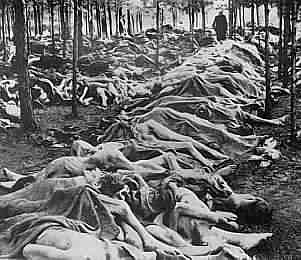 Here it comes: the old one-two punch:
Here it comes: the old one-two punch:"The Bush administration announced on Friday that the basic Medicare premium would shoot up next year 13 percent, to $88.50 a month, mainly because of the increased use of doctors' services.People on Medicare get to look forward to a 13% rise in their rates added onto the cost of prescription drug benefits scheduled to kick in next January, and there's more, as we will see.
Many beneficiaries will pay an additional premium for the new prescription drug benefit, expected to average $32 a month. So the combined premiums for doctors' services, outpatient hospital care and prescription drugs will average slightly more than $120 a month."
The forced march to managed care starts with the choosing of one's own method of execution this month. Big Pharma has been licking their chops in anticipation ever since Dear Leader rounded up the weakest and most vulnerable and gave B.P. a loaded gun to aim at their heads:
"Who is covered. Anybody who is eligible for Medicare or Medicaid. It will be voluntary for most people, but mandatory for roughly 6.4 million current beneficiaries who are eligible for both Medicaid and Medicare because of age, income or disability. They are obligated to enroll and may be penalized if they do not."Talk about fish in a barrel. But what if the more fortunate consumers choose to opt out of the prescription benefit to save money? Whatever will B.P. do?
"Medicare profit will be crucial to Big Pharma. If many of the 43 million eligible Americans sign up during the coming year, the Medicare Prescription Drug Benefit may reshape the whole business of drug development and marketing, buoy sagging stock prices, and affect thousands of local jobs.Noted humanitiarian Grace-Marie Turner, president of the Galen Institute, a research center that advocates free-market health policies (read: you're on your own sucker!), "predicted that the premium increase would 'create a political firestorm.':
But if people do not sign up or if premiums rise sharply, pharmaceutical profit may become a red flag again for patients and politicians looking to control costs. The industry managed to block price controls when the program was designed in 2003.
"As Medicare becomes an increasingly larger part of the budget, I don't see how that doesn't create pressure for greater management of prices," said Marc Benoff, Medicare expert at Cambridge Pharma Consultancy, a unit of IMS Health, an industry-monitoring firm."
"Some areas of the country are seriously overusing health care," Mrs. Turner said. "Everyone winds up paying the price for that. What do you do? Put more price controls into the Medicare program? That clearly has not worked. Consumers need more incentives and more power to manage the costs of their care."Yeah, that's right. We've got people pulling their own teeth with pliers, and dying from entirely preventable diseases because they couldn't afford to go see a doctor, but all this wench sees is a problem on the "consumer" end. Just make it harder for them to get treatment, she reasons (as so many of her ilk, in and out of government, do), and all our troubles will vanish as the morning fog into the sunshiney noon. Well, guess what? We also all of us pay the price for the people who can't afford health care and end up in the hospital on life support. And it's a hell of a more expensive bill than that of a couple shots or a well-care diagnostic series. Do you think people like Turner and Bush and any of the other compassionate conservatives who jumped on this bandwagon ever had to endure a day without excellent health care? Ever went a day without food because they had to? Ever had to make a choice between seeing a doctor and paying the light bill? Please.
But there's another obstacle to fat fourth-quarter returns: dramatic increases in the cost of heating bills this winter, with estimates ranging from 70% higher in the Buffalo and Dayton areas area, to 29% higher in Massachusetts:
"The U.S. Energy Department has predicted that heating oil bills this winter in the Northeast will rise 30 percent, assuming average temperatures.And don't forget the cost of food and other goods transported via fossil fuels, which have already risen. When I walked into my local supermarket a week after the hurricane hit, I found local peaches featured prominently at the entrance in a lovely display, for 2 pounds for $5. Whatta deal! 3 lb. bag of cheap-ass white onions? A dollar a pound! And during a trip across the state last weekend, I saw that people in the west were paying a full 50 cents less per gallon of gas than we here in Philly, despite the fact that we sit on a tank farm of Sunoco refineries, and have the lousy air to prove it. Gas is still averaging over $3.00 a gallon around my area. For some reason Big Oil thought it was a safe bet to really stick it to the mid-Atlantic, so much so that AAA (that knight errant for all things on four wheels) has called for an inquiry into the situation.
The National Energy Assistance Directors' Association is projecting an average heating oil bill of $1,541 this winter, and that was before the bad news of Hurricane Katrina hit the market.
The heating bill for customers using natural gas is likely to be even higher."
The effect of all this is bad enough for people who are able to work:
"(Kathleen Camilli, head of Camilli Economics in New York) adds a sober thought: We'd better hope higher prices get stuck at the input level. She holds little hope that wages could match a serious wave of price hikes.But for the retired, or disabled, or just plain poor who often live on a knife edge, and who will be the ones forced to pick a plan this month, these are the kinds of things that make the difference between being able to eat or not.
If customer-support desks can be outsourced to Bangalore, India, and factory jobs to China, then surely there's a limit on how much an American worker can demand to make up for his higher cost of living. This is especially true of underskilled, nontech workers. The lower down the ladder the worker is, the more vulnerable he is.
Average hourly earnings in August rose 2.7% vs. a year earlier. So wages have nearly kept up with prices.
But the latest energy price surge will likely outstrip modest raises.
Also, Camilli says the CPI doesn't fully reflect local price changes.
Yes, prices are falling for a bunch of things: computers, cell phones, clothing. These are the items that can be made cheaply abroad by big companies that can employ innovations or economies of scale, like Dell, (DELL) Motorola (MOT) and Wal-Mart. (WMT)
But services are more shielded.
The barber on Main Street can't use cheap Chinese labor to offset skyrocketing energy costs. Likewise, his customers can't go overseas for a trim.
Either the barber raises his prices, eats the higher costs, or lays off a worker, like the guy who sweeps up. In reality, we're seeing a combination of all three of these options.
Camilli says this is the kind of data that the government misses."

Don't talk to me about the fabulous job Bush did covering his scat in New Orleans last week. Don't tell me about compassionate conservatism. I don't believe in conspiracy theories, and that's why this is not a conspiracy theory. This is a Final Solution.





No comments:
Post a Comment